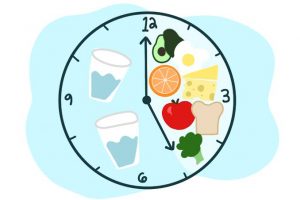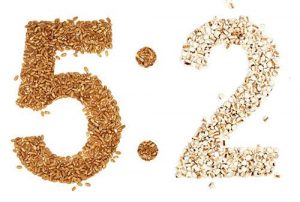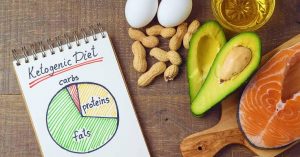
IF simply involves switching between fasting and eating on your normal schedule.
This method could help you manage your weight and ward off chronic diseases if monitored and done effectively.
BASIC CONCEPTS
Before going into this practice, it is important to know what it entails.
Some basics to know:
– you have to skip one meal
– you can still have your favourite healthy meal while fasting
– you can drink water while fasting
– you can have no-calorie beverages while fasting. Examples include coffee, green or black tea.
So for everyone that has heard about IF or has practised it before, normally, you would skip breakfast while fasting, because it feels easier.
-But, according to a research carried out by USDA economic research service, it was noticed that skipping dinner, reduced more daily calories and lowered diet quality the least when compared to skipping breakfast or lunch.
-Also note that your night fast should be longer than 2 hours and shorter than 24 hours
TYPES OF IF
There are basically 3 popular types of IF:
– 16:8 method
– 5:2 method
– eat-stop eat method.
Others include OMAD, and warrior diet.
16: 8 METHOD

This method involves restricting your eating to just 8 hours windows in a day. you have to fast for the remaining 16 hours of that day.
– It is the most popular and preferred style
– A 2016 study found that when combined with resistance training, the 16/8 method helped decreased fat mass and maintain muscle mass in male participants.
– A more recent study found that the 16/8 method did not impair gains in muscle or strength in women performing resistance training
5:2 METHOD

This method involves eating normally for 5 days in a week, then restricting your calorie intake to 500 calories for the remaining 2 days.
– According to a 2018 study, the 5:2 diet is just as effective as daily calorie restriction for weight loss and blood glucose control among those with type 2 diabetes.
EAT-STOP-EAT METHOD
This method involves fasting for 24 hours twice or thrice a week.
– Fasting for 24 hours would lead to a metabolic shift and ause your body to use up fat
– But staying off food for 24 hours might lead to binging and overconsumption.
IF AND YOUR HORMONES
– IF positively affects the human growth hormone (HGH), especially when done adequately. These hormone levels increase when you do IF, and higher levels of this hormone facilitate fat burning and muscle gain.
– IF also increases the amount of norepinephrine in our bodies which help to breakdown body fat and facilitate it use for energy
– intermittent fasting decreases androgen markers (i.e., testosterone and the free androgen index (FAI)) while increasing sex hormone-binding globulin (SHBG) levels in premenopausal females with obesity.
– fasting may prove to be a valuable tool for treating hyperandrogenism in females with polycystic ovarian syndrome (PCOS) by improving menstruation and fertility.
BENEFITS
– WEIGHTLOSS: A 2014 review of scientific literature found that IF can cause 3–8% weight loss over 3–24 weeks, which is a significant amount. Also, participants lost 4-7% of their waist circumference.
– CAN REDUCE INSULIN RESISTANCE: IF can help reduce insulin resistance. According to research, it can help reduce blood sugar by 3–6% and fasting insulin levels by 20–31%.
– HEART-HEALTH: IF may help to reduce bad cholesterol, and blood triglycerides.
– OXIDATIVE STRESS: IF may help reduce inflammation (a key factor in disease processes) and oxidative stress.
– BRAIN HEALTH: may increase the brain hormone brain derived neurotrophic factor (BDNF) and may help in the growth of new nerves. it also may help prevent alzemheirs
– DECREASE IN APPETITE: according to research, time-restricted fasting (16 8), decreased mean ghrelin levels, increased fullness in participants, and decrease the desire to eat.
Also, in the first 12 hours of fasting, there is a slight increase in ketone bodies, this helps in appetite suppression.
POSSIBLE DOWNSIDES
– Malnutrition: if not done properly, intermittent fasting could lead to serious malnutrition. some very vital micronutrients and electrolytes might be lacking in your diet if not monitored.
– Dehydration: during a fast, your body tends to release water and salt via the urine. if this water isn’t replenished, you get dehydrated.
– Bad breath: during fasting, fat is used up majorly as fuel. fat metabolism leads to acetone formation which can affect your breath
-fatigue and low energy: when fasting, especially if you are not adequately monitored, with an inadequate intake of calories, you tend to be fatigued due to a low intake of calories
5. Headaches and lightheadedness: this is most common in intermittent fasting and occurs within the first few days especially if you’re a newbie.
6. Hunger and cravings: normally you’d feel hunger cues during your fasting. they tend to be heavier if you don’t do it well.
Most of these side effects should disappear in 2 weeks,
TIPS TO NAVIGATE EFFECTIVELY
• Know your nutrient needs
• Always incorporate proteins into your eating window
• Know your energy requirements
• Always stay hydrated
• Avoid overeating/undereating
• Maintain a balanced diet
• Try out the different types of IF
• Keep track of your journey
• Adapt a suitable workout routine
• Plan meals
• Speak to a registered dietitian
WHO SHOULD NOT BE ON IF?
• If you are underweight
• If you have a history of an eating disorder
• If you are pregnant
• If you are breastfeeding
• If you are on insulin (type 1)
• Anyone with immunosuppression
• Transplant patients
• Chronic kidney diseases
• Poorly controlled diabetes (unless an endocrinologist is involved).
• Adolescents and kids
• Elderly (muscle mass)
SUMMARY
The intermittent fasting pattern of eating is quite a beneficial one with side effects that can easily be managed. But, it is important that you are monitored by health practitioners before delving into this type of diet.
Also, before starting, be sure of the type of fast that would suit your lifetyle and schedule.
SOURCES:
-https://www.hopkinsmedicine.org/health/wellness-and-prevention/intermittent-fasting-what-is-it-and-how-does-it-work
– https://www.healthline.com/nutrition/6-ways-to-do-intermittent-fasting
– https://www.ncbi.nlm.nih.gov/pmc/articles/PMC3680567/
– https://pubmed.ncbi.nlm.nih.gov/31525701/





 Generally, one major factor considered to affect fertility is age. As you grow older, your organs, hormones and system seem to deteriorate.
Generally, one major factor considered to affect fertility is age. As you grow older, your organs, hormones and system seem to deteriorate.